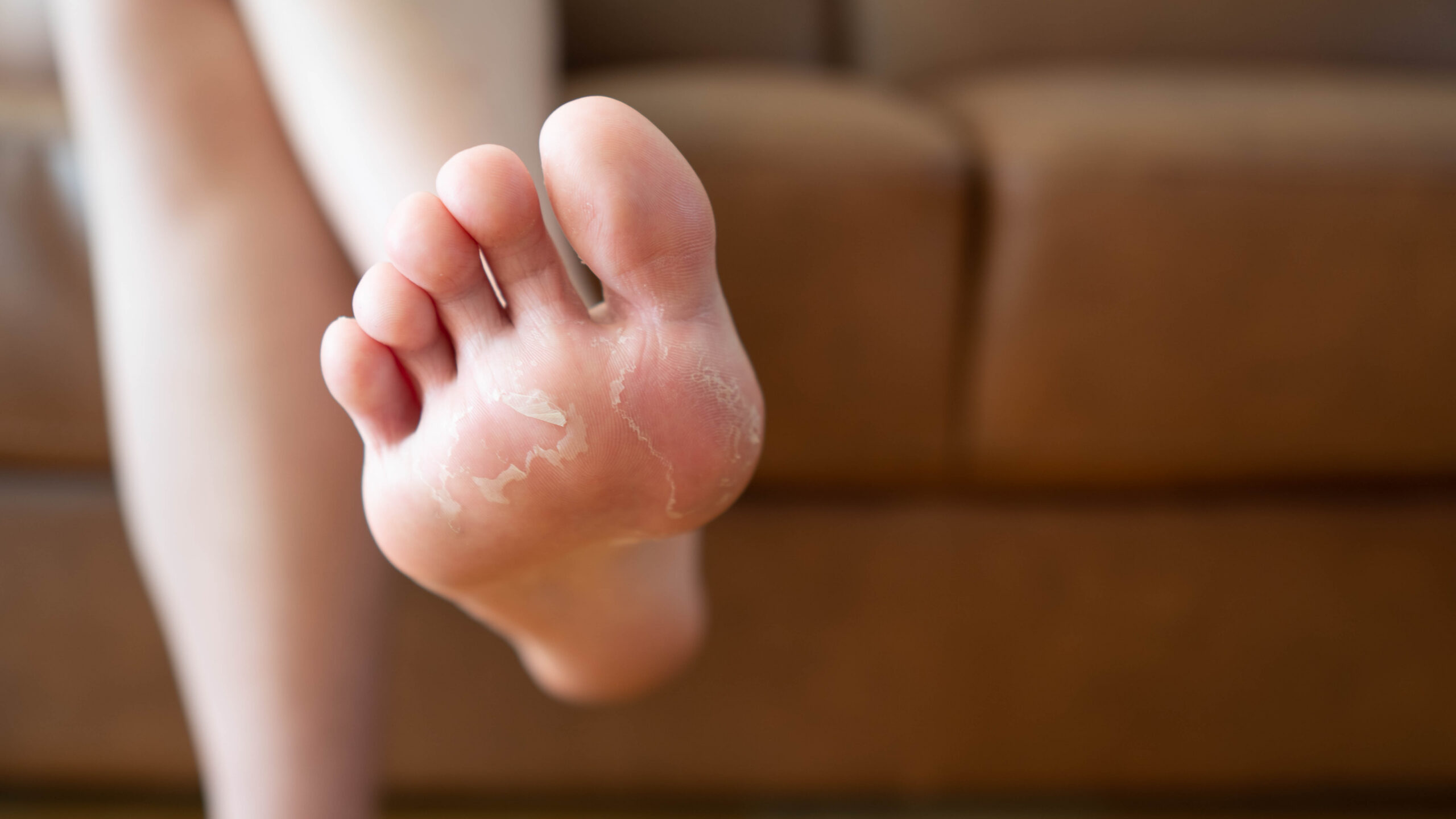Athlete's foot
Itching, burning, or peeling skin between the toes
Athlete’s foot is a common fungal infection that affects the skin, usually starting between the toes. It thrives in warm, damp environments and spreads easily in places like locker rooms, gyms, and shared showers.
The infection can cause redness, scaling, cracking, and itching. Without treatment, it may spread to other parts of the foot or toenails and lead to more serious skin problems.

Common Questions about Athlete's foot
What causes athlete’s foot?
It’s caused by a fungus that grows on the skin. It spreads through contact with contaminated surfaces, shoes, or towels.
What are the symptoms?
Common signs include itching, burning, peeling, or cracked skin—especially between the toes. Some people also notice blisters or dry, scaly patches.
Is athlete’s foot contagious?
Yes. It can spread through skin-to-skin contact or shared surfaces. It’s important to avoid walking barefoot in public areas and not to share socks or shoes.
How is it diagnosed?
We usually diagnose it based on appearance. In some cases, we may take a skin sample to confirm it under a microscope.
How is it different from dry skin?
Athlete’s foot tends to itch and peel, often in a pattern that starts between the toes. Dry skin doesn’t usually cause the same irritation or cracking.
Can I treat it at home?
Over-the-counter antifungal creams help mild cases, but if symptoms don’t improve or come back often, it’s best to get medical care.
Treatment Options
We treat athlete’s foot with antifungal medications and skin care guidance. Treatment may include:
- Prescription-strength antifungal creams or pills
- Foot hygiene and skin care tips
- Drying powders for moisture control
- Guidance on footwear and sock materials
- Treatment for fungal toenails if involved
We can diagnose and treat athlete’s foot in all of our offices.
Meet our providers
Our doctors are ABFAS Board Certified and are all Fellows in the American College of Foot and Ankle Surgeons.
Meet the Doctors
Why patients choose us
Patients come to us for careful exams, clear answers, and treatment that works.

Doctors with years of experience

Offices across Rhode Island and Massachusetts

Advanced treatments for complex cases

Clear communication before and after your visit
4.9-star average from more than 2,000 patient reviews
“ Very helpful and pleasant. My feet always feel better after I visit their clinic. I would recommend them without hesitation.James H.P.
Locations across Rhode Island & Massachusetts
We have offices in North Providence, Warwick, Pawtucket, Cranston, East Providence, Johnston, Newport, and other nearby towns. Each location has its own hours and contact information. Many offer same-week appointments.
See all Locations